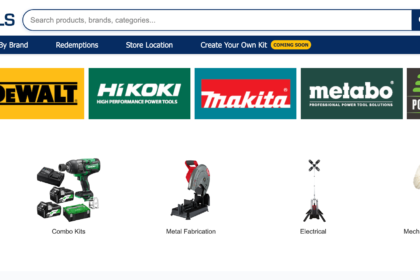Assessing Your Business Needs for Custom Software Developers
Before jumping into custom software, it’s smart to take a step back. What problems are you really trying to solve? What are your business’s specific needs? It’s easy to get caught up in the excitement of new tech, but a clear understanding of your requirements is key. This helps determine if custom software developers are the right path.
It’s about figuring out if off-the-shelf solutions can cut it, or if you need something more tailored. Think of it like buying a suit: can you get away with something off the rack, or do you need a bespoke fit? The answer depends on the occasion, and in this case, your business needs.
Ultimately, the goal is to make an informed decision. This involves weighing the pros and cons of custom development against pre-built tools. It’s about finding the solution that best fits your business’s unique challenges and goals.
Evaluating Current Solutions Before Making a Choice
Before you even think about custom software developers, take a hard look at what you’re already using. Are your current tools really failing you, or are there ways to make them work better? Sometimes, a simple tweak or integration can solve the problem.
It’s important to research the market. See what other software is out there that might fit the bill. You might be surprised at what’s available. Don’t just assume that custom is the only way to go.
Consider these points:
- Does the software integrate smoothly with your existing systems and tools?
- Assess software security and compliance with industry regulations.
- Research the vendor’s reputation for reliability, customer support, and ongoing maintenance.
Determining Unique Functionality Requirements
What does your business do that’s different from everyone else? What are your unique workflows and processes? If off-the-shelf software can’t handle these, then custom software developers might be the answer.
Think about the features you absolutely need. What are the non-negotiables? What will give you a competitive edge? These are the things that custom software can deliver.
Custom software can offer unique functionalities that differentiate your business from competitors, potentially streamlining operations in a way that off-the-shelf solutions can’t.
Prioritizing Long-Term Scalability and Future-Proofing
Where do you see your business in five years? Ten years? Will your software be able to grow with you? Scalability is crucial, and it’s something that custom software developers can address from the start.
Consider how easily your software can adapt to new technologies and changing market conditions. You don’t want to be stuck with a system that’s obsolete in a few years. Future-proofing is key.
Custom software can be designed to be flexible and adaptable. This means it can evolve as your business evolves. It’s an investment in the future, not just a quick fix for today’s problems.
Understanding the Time Commitment for Custom Software Developers
Time is money, right? When thinking about custom software developers, it’s not just about the features, but also how long it takes to get them. Building something from scratch can be a marathon, not a sprint. Let’s break down the time factors involved.
Does Your Timeline Allow for Custom Development?
Can you wait? That’s the big question. Custom software isn’t instant. It needs planning, coding, testing, and tweaking.
If you need a solution yesterday, custom might not be the way to go. Consider how critical the timing is for your project.
Think about market windows and competitive pressures. Missing a deadline could mean missing an opportunity.
Comparing Turnaround Times for Buy vs. Build
Buying a pre-built tool is usually faster. It’s off-the-shelf, ready to go. But custom software developers? They’re building something unique, which takes time.
| Feature | Pre-built Tool | Custom Software | |
| Implementation | Days/Weeks | Months | |
| Customization | Limited | Extensive | |
| Time to Value | Faster | Slower |
Consider the trade-offs. Speed versus tailored functionality. What’s more important for your business?
Accelerating Development with Agile and DevOps
Agile and DevOps can speed things up. These methodologies focus on iterative development and continuous integration. This means faster feedback and quicker adjustments.
Agile helps break down the project into smaller, manageable chunks. DevOps streamlines the deployment process. Together, they can significantly reduce the overall development timeline.
However, even with these approaches, custom development still takes time. Don’t expect miracles. Realistic expectations are key when working with custom software developers.
Analyzing Cost Implications with Custom Software Developers
Considering Upfront and Long-Term Expenses
Figuring out the money side of things is key. Buying software might look cheaper at first. But custom software? It could save you more in the long run.
Think about what you’re paying for. Are you stuck with features you don’t even need? Custom solutions cut that out.
Custom software can be a smart move if you want to avoid ongoing fees and get exactly what you need.
Evaluating Total Cost of Ownership Drivers
What really drives up the cost? It’s not just the initial price tag. Think about the whole picture.
Maintenance, updates, and even training all add up. Vendor lock-in can also hike up prices.
Here’s a quick look at some cost drivers:
- Upfront licensing
- Data migration
- Workforce training
Assessing Capital Expenditure and Maintenance Costs
Building your own software means big initial spending. You’ll need infrastructure to grow. Buying? You might face extra licensing fees as you scale.
Who handles the upkeep? Vendors often take care of maintenance and updates. But if you build it, that’s on you.
Don’t forget about staff. Whether you buy or build, you’ll need people to manage it. Custom software developers are a must for custom solutions.
Evaluating Team Capabilities for Custom Software Developers
Assessing In-House Expertise and Bandwidth
Does your team have the right skills? Evaluating team capabilities is key. Can they handle the project’s complexity?
Consider their current workload. Are they already stretched thin? Adding a custom software project might be too much.
Don’t underestimate the time commitment. It’s better to be realistic about what your team can handle.
Determining Resource Allocation for Development
How much time can your team dedicate? Resource allocation is crucial. Will this take them away from other important tasks?
Think about the tools they’ll need. Do they have the right software and hardware? Are there any training gaps that need to be filled?
It’s important to have a clear plan for how resources will be used. This will help ensure the project stays on track and within budget.
Considering External Expertise and Outsourcing Options
Do you need outside help? Sometimes, it’s best to bring in experts. This could mean hiring freelancers or working with a software development company.
Outsourcing can fill skill gaps. It can also free up your team to focus on their core responsibilities. Evaluating team capabilities might reveal the need for external support.
Consider the cost of outsourcing. It might be more expensive upfront, but it could save you money in the long run. Especially if your team lacks the necessary skills.
Strategic Advantages of Custom Software Developers
Achieving Competitive Differentiation
Custom software can be a game-changer for standing out in the market. It lets a business do things its own way, instead of being stuck with the same tools as everyone else. Custom software developers can build features that no one else has, giving a real edge.
Think of it like this: if everyone uses the same pre-made software, they’re all playing the same game with the same rules. Custom software lets you change the rules.
This is especially important in crowded markets where every little advantage counts.
Tailoring Solutions for Specific Workflows
Pre-built software often forces businesses to adapt their processes. Custom software developers flip that around. They build software that fits the way a business already works.
This means less training, less disruption, and more efficiency. It’s like getting a suit tailored instead of buying one off the rack.
It just fits better and looks better, and it works better.
Ensuring Seamless Integration with Existing Systems
One of the biggest headaches with new software is getting it to play nice with what’s already there. Custom software can be designed to integrate perfectly with existing systems.
This avoids data silos and compatibility issues. It makes everything run smoother.
Custom software developers can create bridges between different systems, ensuring that data flows freely and processes are streamlined. This is a huge advantage over pre-built tools that often struggle to connect with legacy systems.
Addressing Limitations of Prebuilt Tools with Custom Software Developers

Prebuilt tools offer convenience, but they often come with limitations. Businesses sometimes find themselves needing more than what’s available off the shelf. That’s where custom software developers come in. They can create solutions tailored to specific needs, overcoming the constraints of prebuilt options.
Overcoming Predefined Feature Constraints
Prebuilt tools have fixed features. This can be a problem if a business needs something specific. Custom software development allows for the creation of features that perfectly match business requirements. It avoids the need to adapt workflows to fit the software.
- Custom solutions offer flexibility.
- Businesses gain control over functionality.
- Specific needs are directly addressed.
Mitigating Vendor Dependency Risks
Depending on a vendor for software can be risky. What happens if the vendor goes out of business or changes their pricing? Custom software developers offer an alternative. They create solutions that the business owns and controls.
Custom software reduces reliance on external vendors. This provides greater long-term stability and control over the software’s future.
Enhancing Integration Functionality
Prebuilt tools don’t always integrate well with existing systems. This can lead to data silos and inefficient workflows. Custom software development allows for the creation of solutions that seamlessly integrate with other systems.
- Improved data flow.
- Streamlined workflows.
- Better overall system efficiency.
Wrapping It Up
So, when it comes to picking between custom software and something already made, there’s no single right answer. It really depends on what your business needs, how much money you have, and how fast you need things to happen. Sometimes, a ready-made tool is perfect because it’s quick and cheaper upfront. But other times, if you have really specific needs or want something that gives you an edge over competitors, building your own software makes more sense. Think about the long game, too. Will this choice help you grow and change down the road? Getting this decision right can make a big difference for your business.
For More Information Visit Timelymagazine








